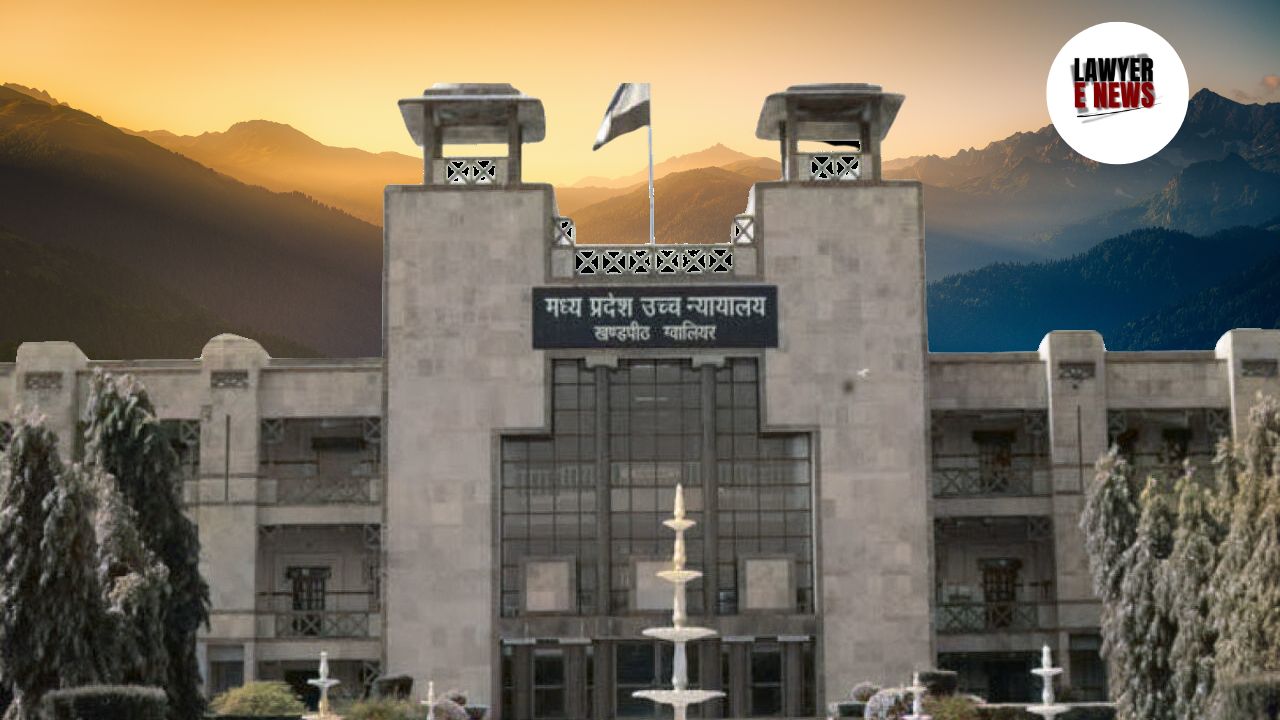-
by Admin
15 February 2026 2:36 AM



Madhya Pradesh High Court upheld the conviction of Anoop for molesting an 11-year-old girl under the Protection of Children from Sexual Offences (POCSO) Act. The court confirmed the trial court's sentence of three years' rigorous imprisonment, along with a fine of ₹1,000. Anoop had been convicted under Section 7/8 of the POCSO Act for sexually assaulting the minor by luring her to his room and pressing her chest.
"Modesty of a Child is Her Right," MP HIGH COURT
In its detailed judgment, the court reaffirmed the principle that the modesty of a woman, irrespective of age, is an essential right. Justice Prem Narayan Singh stated:
"The essence of a woman’s modesty is her sex. Even a child possesses modesty, which can be outraged. The act of pressing the prosecutrix's chest demonstrated the sexual intent of the appellant."
The incident occurred on August 28, 2018, when the appellant, Anoop, called the victim and her friend, Roshni, to his room under the pretext of having some work. Once inside, he locked the door and began molesting the victim. The girl managed to escape and later reported the matter to her mother, who lodged an FIR against Anoop. The police arrested Anoop and charged him under Sections 7/8 of the POCSO Act.
The trial court convicted Anoop, and he was sentenced to three years of rigorous imprisonment. Dissatisfied with the verdict, Anoop filed an appeal before the Madhya Pradesh High Court.
During the appeal, the counsel for Anoop argued that the trial court had erred in its judgment. He claimed that the prosecution’s evidence was contradictory and unreliable. Anoop’s defense centered around the argument that the girl’s family had falsely implicated him due to old animosities. Furthermore, the defense questioned the age of the victim, arguing that the prosecution had failed to conclusively prove that she was a minor at the time of the incident.
The High Court carefully examined the testimonies of the victim (PW-3), her parents (PW-1 and PW-2), and other key witnesses. The court found the victim’s testimony to be consistent and unshaken during cross-examination. The girl had clearly described the sequence of events, detailing how Anoop molested her and then threatened her with violence if she disclosed the incident to anyone.
The court also relied on the scholar register provided by the victim’s teacher (PW-5), which confirmed that the victim was born on October 9, 2007, making her 11 years old at the time of the assault. The court rejected the appellant’s argument about the victim’s age, holding that the prosecution had sufficiently proved that she was a minor, thus bringing the case under the ambit of the POCSO Act.
In dismissing Anoop’s appeal, the court emphasized that his actions clearly demonstrated sexual intent. Citing Section 30(1) of the POCSO Act, the court noted that in such cases, a presumption of culpable mental state arises, and the burden shifts to the accused to prove otherwise. The court found no merit in the appellant's argument and held that Anoop's actions showed clear intent to molest the victim.
The Madhya Pradesh High Court affirmed the trial court’s judgment, holding that the conviction under Sections 7/8 of the POCSO Act was correct. The court ruled that the sentence of three years' rigorous imprisonment was appropriate, given the nature of the crime and the age of the victim. Anoop’s appeal was dismissed, and he was ordered to serve his full sentence. The court underscored the importance of safeguarding children from sexual offenses and upheld the principles of justice.
Date of Decision: September 20, 2024
Anoop v. State of Madhya Pradesh & Others
